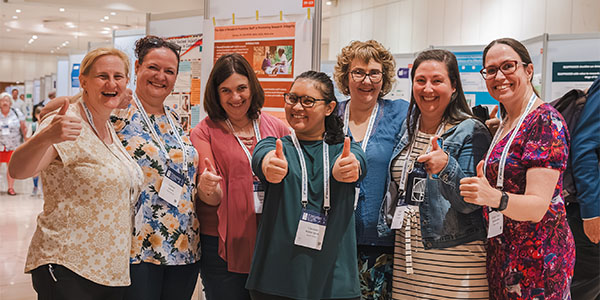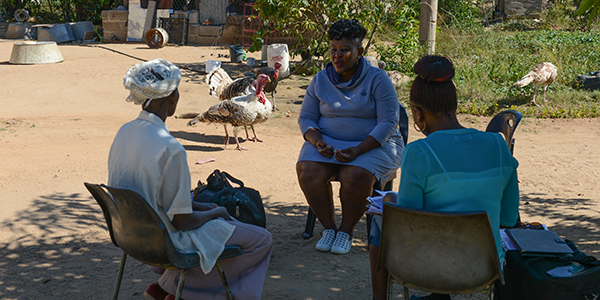8th World Conference on Research Integrity awards South African Community of Practice
- Wits University
SARIMA Community of Practice for Research Ethics and Integrity wins Anderson-Kleinert Diversity Award at 8th World Conference on Research Integrity (WCRI).
SARIMA is the Southern African Research & Innovation Management Association.
Co-Chairs and members of the Northern Region Community of Practice (CoP), including Eleni Flack-Davison (Wits), Tanya Coetzee and Retha Visagie (UNISA), and Sidney Engelbrecht (KAUST - in abstentia) received the award during the 8th WCRI, which took place from 2 to 5 June 2024, in Athens, Greece.
The Anderson-Kleinert Diversity Award highlights oral presentations representing and enhancing the diversity of voices, ideas, or experiences.

The WCRI selects up to three presentations for the Anderson-Kleinert Diversity Award, based on abstracts accepted for oral presentation.
Some of the members of the CoP made the oral presentation for a study titled, Indigenising research management: What does it mean for Research Integrity Managers and Administrators?, for which they received the Anderson-Kleinert Diversity Award.
Eleni Flack-Davison is a Legal Advisor, Head of the Office of Research Integrity, and Research Compliance Manager at the University of the Witwatersrand, Johannesburg (Wits).
She is also Vice-Chair and leads the Marketing and Communication Working Group for the Research Ethics Committee Association of Southern Africa (REASA), and she serves on the SARIMA Research Management Portfolio.
Flack-Davison says, “Our Community of Practice aims to cultivate a platform and forum for research managers and administrators to network and engage with peers, sharing best practices and creating new knowledge for common professional purposes. The Indigenising project is a priority focus of the CoP”.
‘Indigenising’ Research Management and Administration
The award-winning oral presentation and study aims to understand how research managers and administrators (RMAs) make sense of “Indigenising” research management, focusing on research integrity.
At the International Network of Research Management Societies conference last year, ahead of the World Conference on Research Ethics this June, RMAs were asked:
- What does ‘Indigenisation of research management and administration’ mean to you?
- Identify and motivate five core principles that should guide ‘Indigenisation of research management and administration’.
The initial findings, shared at the WCRI 2024 as part of phase I of the study, revealed that Indigenisation requires a paradigm shift from research stakeholders, including RMAs, to resist the uncritical adoption of Eurocentric research codes and practices.
Furthermore, RMAs’ answers indicated a call to decolonise the mind and advocate for the preservation of local knowledge and contexts in research and management practices.
According to the initial findings, the principles of inclusivity, diversity and justice, cultural humility, integrity, and transparency should guide the Indigenisation of research management and administration to ensure “singing the same hymn”.
Towards entrenching ‘Inidigenisation’
The call-to-action for RMAs is to infuse local knowledge, beliefs, customs, and values in all management aspects throughout the research life cycle.

During phase II of the study, individual interviews and focus groups aim to elicit deeper understanding of the practical implications of Indigenising research management and administration.
*A similar article will be published by Unisa and SARIMA as the awardees are part of the team that won the same award for the SARIMA Community of Practice for Research Ethics and Integrity.


